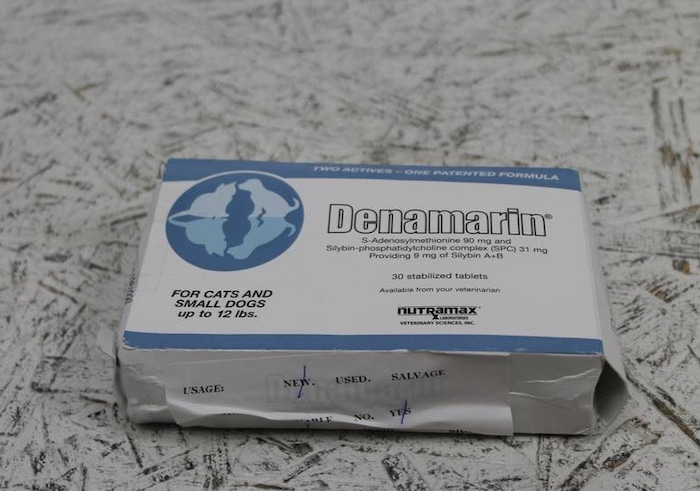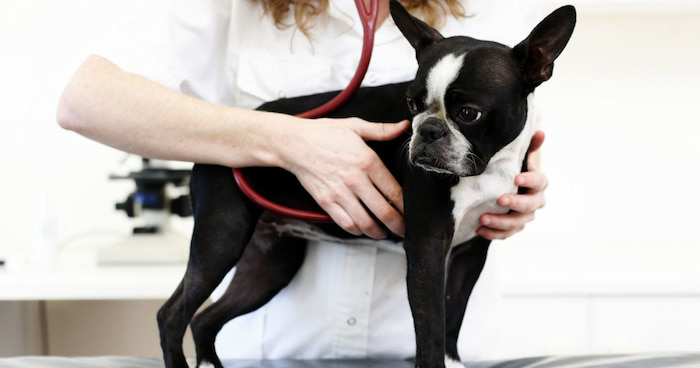If the mitochondria are the powerhouse of the cell, then the liver is the premium biochemical laboratory of both humans and dogs. Performing over 500 vital functions, it not only aids in digestion through bile production but also takes in all of the blood leaving the intestines for further processing. Some of its roles include the production of cholesterol and certain proteins like albumin, clotting factors, immune factors and special proteins (lipoproteins) that carry fats throughout the body.
Furthermore, it stores iron, blood and glucose in the form of glycogen that can easily be converted back into glucose when needed. Also, the liver regulates the building blocks of proteins (amino acids) and the byproduct of protein breakdown (ammonia), converting it into a safer product (urea) which is then excreted in the urine.

Last but not least, the liver is a sophisticated filter for both microorganisms and toxins. All foreign substances, like pet medications and anesthetics, must face the fury of the liver cells aka hepatocytes. In cases where it can’t fulfil its detoxifying role, mostly due to disease or overload a diet change can help. However, this alone may not be sufficient. In these cases, your dog’s liver could greatly benefit from Denamarin liver support that will enhance its toxin fighting ability.
What Is Denamarin?
A tablet of Denamarin liver support has 2 natural liver protectors, S-adenosylmethionine (SAMe) and Silybin. During many processes in the body, especially detoxifying ones, some pivotal chemical groups are not available for detoxifying enzymes. S-adenosylmethionine (SAMe) is a compound that functions widely in the body as a group donor and inducer of enzymes. It also supplies glutathione with sulphate groups, a crucial antioxidant that scavenges free radicals. The liver synthesizes the majority of SAMe in the body.
During liver disease, SAMe concentrations fall and your dog’s liver can’t produce it on its own. This means less enzyme induction, less glutathione and a lesser antioxidant capability. The maintenance in the lab is down. Silybin is an extract of milk thistle and one of the most prescribed natural compounds. They’ve been used as antioxidants or chemopreventives and anticancer agents, especially know for their hepatoprotective (liver protective) abilities. Experimental studies have clearly demonstrated the antifibrotic, antioxidant and metabolic effects of silybin.

At doses < 10 g/d silybin doesn’t show significant interactions with other drugs or side effects. The specific silybin used in Denamarin liver support has been shown to provide better bioavailability in dogs and cats compared to the standardised over-the-counter milk thistle extracts.
One study evaluated canine liver cells (hepatocytes) pre-treated with the combination of S-adenosylmethionine and silybin. The SAMe and SB combination reduced the inflammation and oxidative stress through 2 separate pathways. Firstly, the production of inflammatory factors (cytokines, interleukins, prostaglandins) was reduced. Secondly, there was an increase in glutathione. The anti-inflammatory and antioxidant properties were confirmed once more.
Make sure that when you buy Denamarin for dogs, your supplier is authoritative and trustworthy. All prescription pet medication by your supplier should be sourced from Australian veterinary wholesalers and Australian registered pharmacists, registered with the Australian Government (TGA or APVMA) and processed and dispensed by Australian-registered pharmacists.
What Causes Liver Problems in Dogs?
Liver disease can involve the hepatic cells, bile ducts and the vascular system. Unfortunately, animals are nearly never brought to the vet at the onset of the disease hence any combination of liver dysfunction could be encountered. In young dogs, one of the most common vascular liver disorders is a congenital portosystemic shunt, a vessel that bypasses the liver, preventing the liver to perform a detox of the blood. In older dogs, acquired shunts are more common, which develop when there is a blood pressure back up in the liver.

Certain endocrine pet medical conditions can lead to impaired liver function such as diabetes, hyperthyroidism and Cushing’s disease. Leptospirosis is a bacterial infection that can lead to liver disease. The most common viral liver disease is canine hepatitis while the most common fungal causes of liver disease in dogs are coccidiomycosis and histoplasmosis.
Liver masses in dogs can be benign such as liver cysts or malignant, more commonly as metastasis instead of primary tumours. The most common symptoms of liver disease in dogs include jaundice, hepatic encephalopathy (neurological symptoms due to ammonia build-up including seizures, disorientation, depression, head pressing, blindness or personality changes), gastrointestinal symptoms such as decreased appetite and vomiting and ascites (fluid buildup in the abdominal cavity).
What Can Denamarin Do for my Dog?
Denamarine liver support can be the first line of defence your dog desperately needs if it’s struggling with liver disease. When the liver is damaged, the toxic build-up not only continues the perpetual cycle of liver damage but also affects the whole body. Denamarin can give your dog the resources to continue the battle. Who knew ammunition could come in the form of chewable tablets?
Denamarin can be prescribed as an adjunctive treatment for liver disease and dysfunction. The most common pet’s medical conditions treated with Denamarin liver support are chronic hepatitis, hepatic lipidosis, cholangiohepatitis, paracetamol toxicity, corticosteroid use, toxin-induced hepatopathy and cancer.
In fact, the protective role of Denamarine against the devastating effects of chemotherapy was investigated. Dogs with lymphoma, mast cell tumour or histiocytic sarcoma that were treated with the chemotherapeutic Lomustine (CCNU) had elevated liver enzymes, indicating liver damage. When this occurs, the treatment needs to be discontinued.

The study concluded that dogs receiving chemo only had significantly greater increases in liver enzymes and a significantly greater decrease in serum cholesterol concentrations than dogs receiving both chemo and Denamarin. Denamarin treatment increases the likelihood of dogs completing a prescribed Lomustine (CCNU) chemotherapy course.
When Should I Give My Dog Denamarin?
Absorption of Denamarin is decreased when it is given with a meal. For optimal absorption, give Denamarin to your dog at least one hour before feeding. For those who find it difficult to administer tablets to their dogs, Denamarin liver support can be hidden and disguised in a small bite of moist food. Your dog can drink water normally.
Denamarin tablets should be taken whole, not broken as they have a protective coating to prevents the destruction of the active ingredient by the stomach’s acidity. You can gradually increase or reduce the number of tablets, depending on your dog’s needs, just make sure you step it up or down with full tablets, never halves. The long term administration is every other day or every third day.












